Español

Debian es una distribución popular y conocida por la comunidad del open source, y se encuentra entre las primeras opciones consideradas por muchos usuarios. Ocupa la posición 8 en el ranking del famoso sitio web reconocido por los amantes de Linux, Distrowatch.
Debian Testing es una distribución de Linux que se destaca por su estabilidad y robustez, a pesar de ser una rama de prueba lanzada por los desarrolladores de Debian. Uno de los motivos por los cuales elegí este sistema operativo es porque ofrece una gran cantidad de paquetes y aplicaciones actualizadas que están disponibles para su instalación en cualquier momento. Además, el proceso de actualización es secillo, lo que significa que puedo mantener mi sistema operativo actualizado con las últimas versiones disponibles sin tener que preocuparme por problemas de compatibilidad, por lo menos hasta ahora según mi experiencia.
Otro motivo por el que elegí Debian Testing es por su enfoque en la seguridad y la privacidad. La comunidad de Debian es muy activa en cuanto a la identificación y corrección de vulnerabilidades, por esta razón, es una de las distribuciones de Linux más seguras disponibles, ya que ofrece actualizaciones constantes, aunque esta afirmación puede ser discutible en cualquier momento. Además, también ofrece una amplia gama de herramientas y aplicaciones de seguridad para proteger mi sistema y mis datos. En general, es una excelente opción para aquellos que buscan una distribución de Linux estable, segura y fácil de usar. En cuanto a la instalación, puede no ser la más sencilla, aunque en la web existen guías para los más novatos, no requiere más de 30 minutos, aunque todo depende la velocidad de descarga del operador de internet que tengamos.
He usado un disco SSD de 128 GB, marca BU KING, adquirido en AliExpress para instalar Debian Testing y ha sido una excelente experiencia. Un SSD ofrece un rendimiento mucho más rápido que un disco duro tradicional, lo que significa que el sistema operativo y las aplicaciones cargan y funcionan de manera más fluida. Además, los discos SSD son más resistentes a las vibraciones y los golpes, por lo que son ideales para su uso en equipos portátiles. Para ello estoy usando una portátil marca Acer Intel Core i3 - 8130U, Ram 4BG y tarjeta gráfica integrada Intel UHD Graphics.
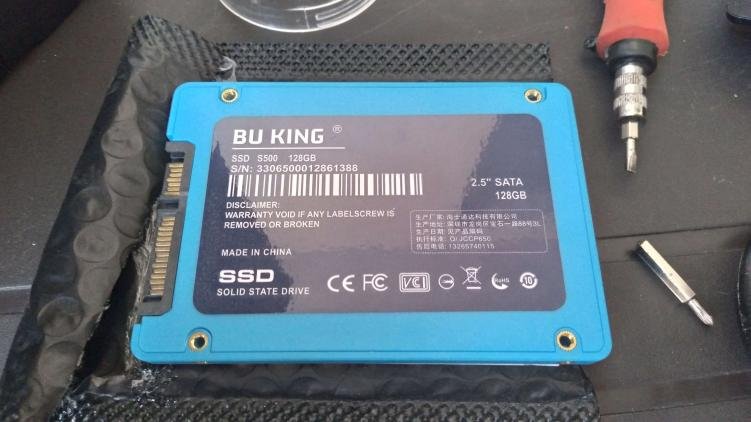
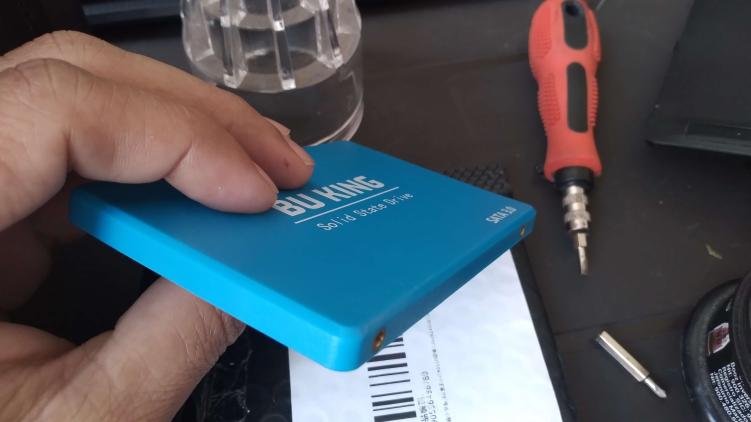
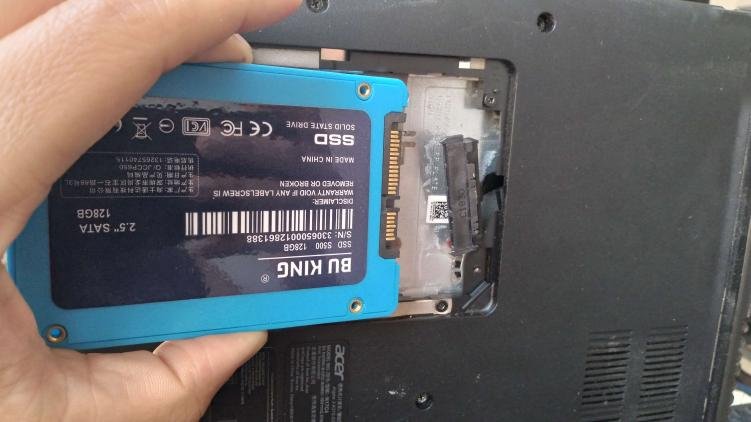
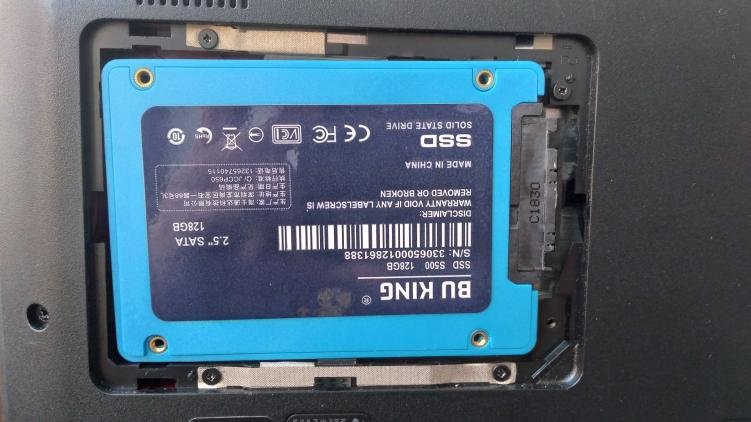
La imagen de instalación la he descargado de su sitio oficial en instalado en una memoria USB 3.0 de 16GB, aunque para ello puede usar dispositivos USB menores a 2GB ya que contiene sólo los paquetes necesarios y los paquetes adicionales los descarga durante la instalación.
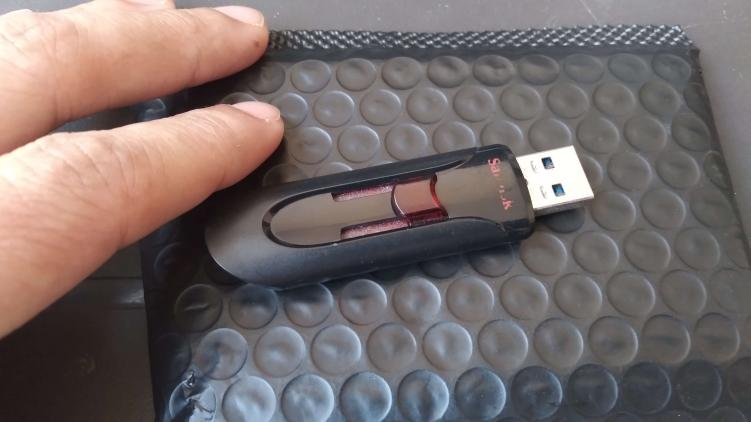
He creado dos particiones en el SSD, la cual consta de 4GB de memoria de intercambio (swap) y el resto en formato ext4 para la raíz del sistema y como contenedor de la carpeta Home.

Ya tengo más de un mes usando esta distribución en mi equipo personal, con el cual desarrollo toda la actividad en Hive y otras tareas. La experiencia ha sido muy satisfactoria sólo con la limitante de espacio en disco, ya que contaba con 16Gb de una memoria Nvme, dándome algunos problemas de rendimiento cuando tenía muchas aplicaciones ejecutándose. Ahora con el SDD y mayor capacidad de almacenamiento, igualando la memoria de intercambio a la capacidad de la memoria Ram del equipo, ya no he tenido estos problemas de rendimiento, la fluidez y estabilidad están presentes.

Me gustaría decir que esta será mi distribución definitiva, pero la verdad que para uno usuario de Linux esto es casi imposible, pero sí estoy seguro que en este momento no existe razón por la cual cambiarme. ¿Cuál es tu opinión sobre Debian? ¿Has usado una rama de pruebas?. Me gustaría leer sus comentarios. Un abrazo.
English

Debian a popular and well-known distribution in the open source community, is among the first choices considered by many users. It occupies the 8th position in the ranking of the famous website recognized by Linux lovers, Distrowatch.
Debian Testing is a Linux distribution that stands out for its stability and robustness, despite being a testing branch released by Debian developers. One of the reasons why I chose this operating system is because it offers a large number of updated packages and applications that are available for installation at any time. Also, the upgrade process is easy, which means that I can keep my operating system up to date with the latest versions available without having to worry about compatibility issues, at least so far in my experience.
Another reason I chose Debian Testing is because of its focus on security and privacy. The Debian community is very active in identifying and fixing vulnerabilities, for this reason, it is one of the most secure Linux distributions available, since it offers constant updates, although this statement can be debatable at any time. In addition, it also offers a wide range of security tools and applications to protect my system and my data. Overall, it is an excellent choice for those looking for a stable, secure and easy to use Linux distribution. As for the installation, it may not be the easiest, although there are guides on the web for the most novice, it does not require more than 30 minutes, although it all depends on the download speed of the internet operator we have.
I have used a 128 GB SSD disk, BU KING brand, purchased in AliExpress to install Debian Testing and it has been an excellent experience. An SSD offers much faster performance than a traditional hard drive, which means that the operating system and applications load and run more smoothly. In addition, SSDs are more resistant to vibration and shock, making them ideal for use in laptops. For this I am using an Acer branded laptop Intel Core i3 - 8130U, Ram 4BG and Intel UHD Graphics integrated graphics card.




I downloaded the installation image from their official site and installed it on a 16GB USB 3.0 memory stick, although you can use USB devices smaller than 2GB for this purpose as it contains only the necessary packages and the additional packages are downloaded during the installation.

I have created two partitions on the SSD, which consists of 4GB of swap memory (swap) and the rest in ext4 format for the root of the system and as a container for the Home folder.

I already have more than a month using this distribution in my personal computer, with which I develop all the activity in Hive and other tasks. The experience has been very satisfactory only with the limitation of disk space, since I had 16Gb of Nvme memory, giving me some performance problems when I had many applications running. Now with the SDD and more storage capacity, matching the swap memory to the Ram memory capacity of the computer, I have not had these performance problems, the fluidity and stability are present.

I would like to say that this will be my definitive distribution, but the truth is that for a Linux user this is almost impossible, but I am sure that at this moment there is no reason to change. What is your opinion about Debian, have you used a test branch? I would like to read your comments. Best regards.
Translated with www.DeepL.com/Translator (free version)
Images are my own or screenshots taken by me, unless outside sources are indicated.
Discord: alberto0607#6813
Follow me on: Twitter







